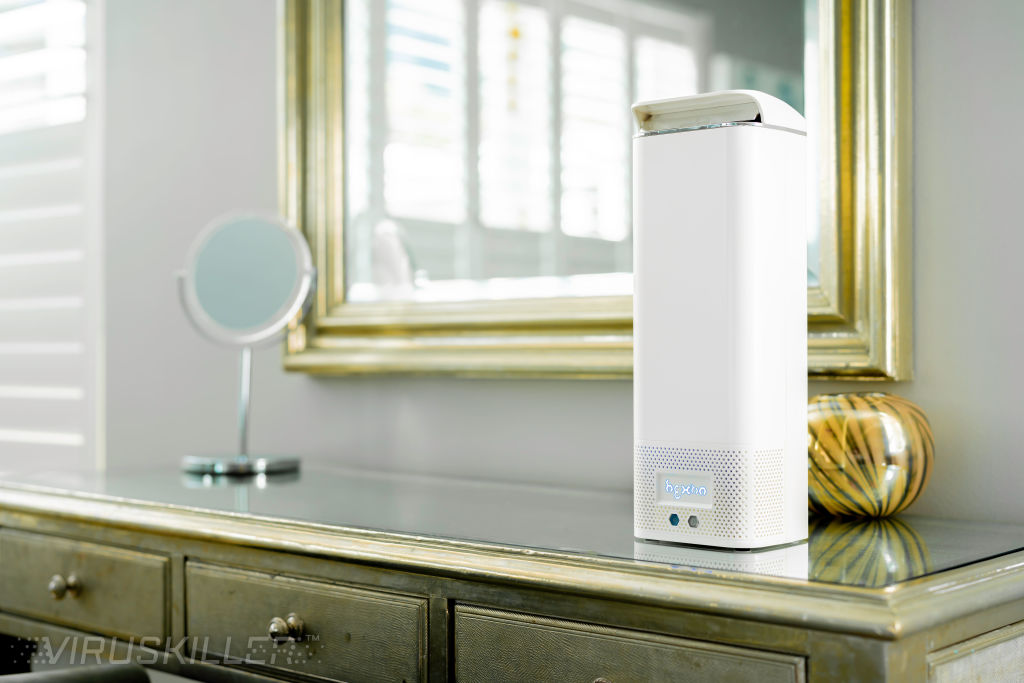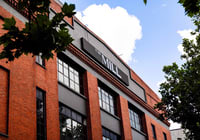
'We need clean, fresh air': Indoor air quality key to reducing risk of COVID-19 transmission
Businesses are being urged to introduce sophisticated new air purifiers into offices, industrial centres and retail spaces to help prevent the transmission of the COVID-19 virus between workers, and customers.
Mitigating the spread of viruses circulating in the air is critical, particularly with the current COVID-19 outbreaks in Sydney, NSW, Melbourne, the ACT and Brisbane, former UTS Dean of Science Bruce Milthorpe told a seminar of business leaders.
“Aerosol transmission would appear to be the main form of transmission now happening but our control measures, the criteria around the lockdown and who are ‘close contacts’, are derived from assuming only direct contact and droplet transmission,” he said.
“But it’s winter, and we close our doors and windows and turn on the heaters or air-conditioning so we are not getting the same amount of fresh air. That leads to a build-up of all the airborne pollutants, including SARS-CoV-2, the virus that gives us COVID-19.”
He was speaking at the launch of new purifiers being brought to Australia by global pest control and disinfection services experts Rentokil Initial, which have been shown, in independent tests with a surrogate for the virus, to kill 99.9999 per cent of coronavirus particles in the air.
The new Radic8 VIRUSKILLER (VC) machines, unlike traditional purifiers, are based on patented technology to purify and decontaminate the air with a UV-C reactor chamber that cleans “sick” air and pumps clean, fresh air back into the room.
Rentokil Initial national technical and innovation manager John Keogh said that while the World Health Organisation (WHO) acknowledged that COVID-19 was an airborne virus, Australian businesses were still floundering when trying to work out what to do about it.
“We are facing the worst indoor air quality crisis in history,” he said. “It has never been clearer that businesses need to take action to protect their customers, employees, and bottom line against the well-documented risks of poor indoor air quality.
“Typical air purifiers are not effective against sick air, including viruses, bacteria and mould, which is increasingly threatening physical and mental activity.”
The warnings came in an online presentation convened about the dangers of sick air – which carries viruses, bacteria, mould, fungi, allergens, organic chemicals, fumes and odours – to the heath of workforces and anyone who comes into contact with them.
An infected asymptomatic person in, say, a shop for 30 minutes would shed thousands of viral particles with each breath, putting more than 300,000 particles into the air, which could hang around for an hour or more, Professor Milthorpe said.
In a small shop, therefore, they would leave behind “a big chance that someone, or several people, in the shop for the hour afterwards will catch COVID-19. We probably cannot completely eliminate the risk of catching COVID-19, but we can minimise it.”
While there are many devices that call themselves air cleaners or purifiers, any device must have a high-efficiency particulate absorbing (HEPA) filter to remove very small particles, he said. The SARS-CoV-2 virus is around one-five-hundredth the width of a hair.
Geoff Hanmer, a member of the International Code Council and the National Environmental Health Association’s pandemic task force, confirmed that COVID did spread through the air, meaning earlier advice to people that social distancing, masks and hand-washing were enough to prevent the virus spreading was wrong.
“We also need clean, fresh air,” Professor Hanmer said. “And the risk [of COVID-19 transmission] is much higher in indoor spaces where there’s 20 times the chance of catching it than in an outdoor setting, and could be as much as nearly 200 times.
“That’s why there’s so much focus on outdoor dining because the chance of being infected outdoors is lower, with the difference being good ventilation. Poor ventilation does contribute to the early spread and good ventilation offers the best chances of not being infected.”
The WHO recently reported that poor indoor air quality was responsible for 3.8 million premature deaths globally, with cross-contamination of airborne viruses and disease 19 times more likely indoors than out, with the Delta variant of COVID-19 accelerating the trend.
A survey by Rentokil Initial found that Australians identified the locations which carried the greatest risks of catching COVID-19 as being shopping centres and hospitality venues (68 per cent), hotels and aged care facilities (67 per cent), medical practices (64 per cent) and workplaces (55 per cent).
Professor Hanmer said he was convinced businesses should start introducing the right kind of air purifiers into their premises to help workers and all those they come into contact with.
“I am very keen to see air purifiers used in institutional settings where air quality is a critical issue and ventilation is inadequate,” he said.
“The right air purifiers can be an effective means of reducing the risk of SARS-CoV-2 transmission but they must be carefully selected, vetted and located to deliver best performance.”










